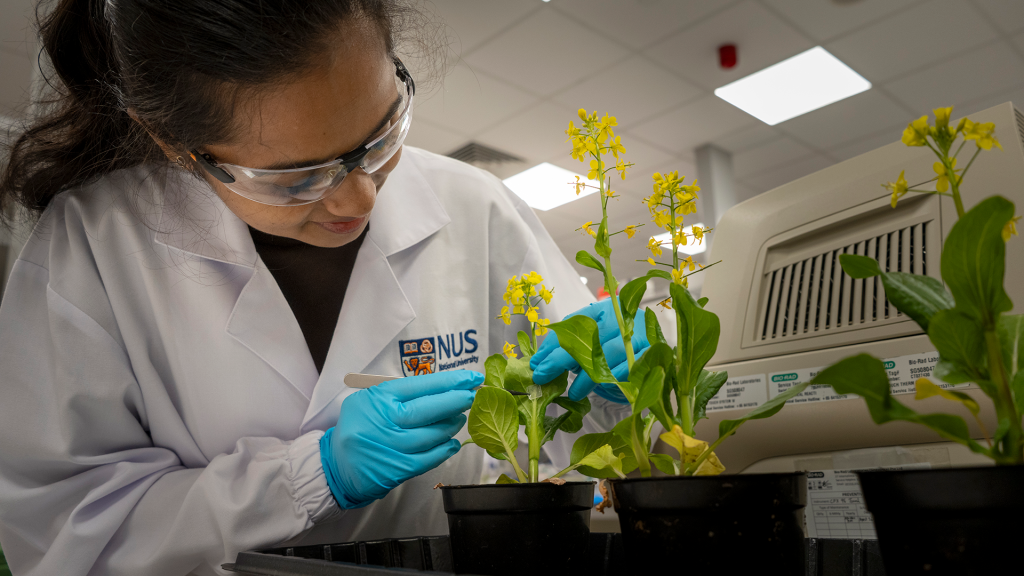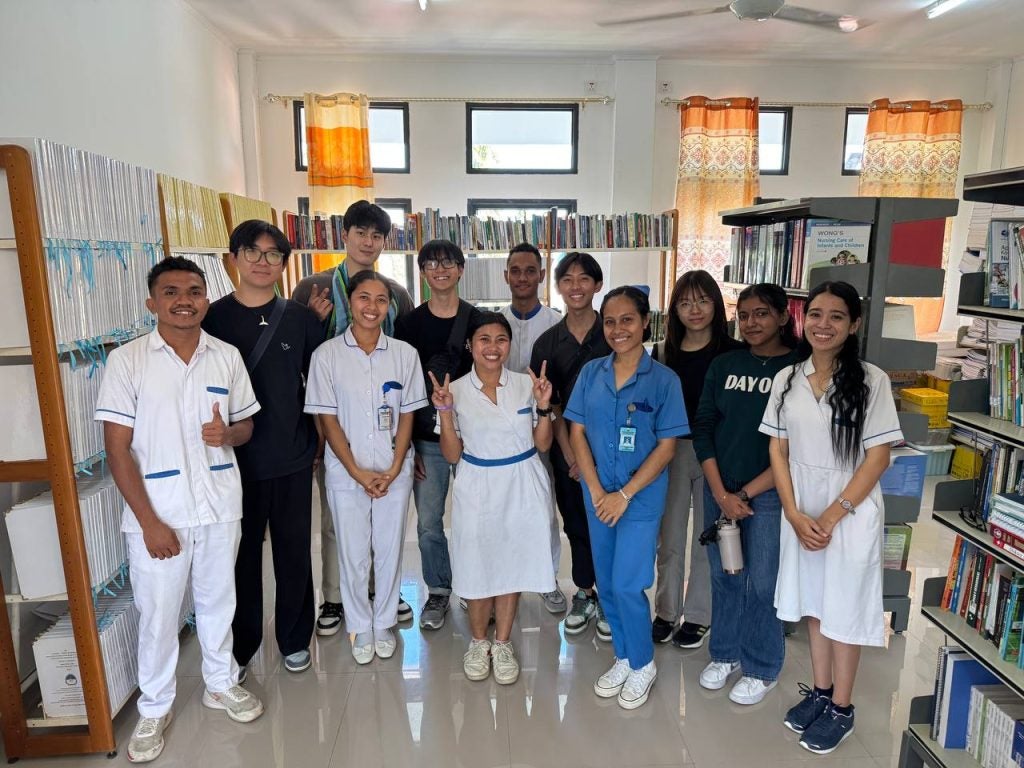The Department of Architecture (DOA) hosted 18 representatives from the Southeast Asian region at the NUS-Association of Southeast Asian Nations (ASEAN) Field School. Organised by DOA and supported by the ASEAN Cultural Fund and the Ministry of Culture, Community and Youth, the NUS-ASEAN Field School took place from 19 - 25 September. The event aimed to enhance practical skills and knowledge on conserving and managing twentieth-century buildings, growing professional networks, and encouraging partnerships amongst participants of different backgrounds and nationalities through experiential learning.
The representatives from Brunei Darussalam, Cambodia, Indonesia, Laos, Malaysia, the Philippines, Singapore, Thailand and Vietnam were treated to interactive site visits and informal site lectures on many of Singapore's modern sites. Some of the places the group visited were the Gallop Extension at Botanic Gardens, St James Power Station and Victoria Theatre and Concert Hall. Dr Nikhil Joshi, from DOA, was the Director of the Field School. Sharing his thoughts about the event, Dr Joshi commented on how he was struck by the general lack of appreciation and understanding of the twentieth-century buildings in the region. "These buildings often define the national identity and aspirations of several nations in the region that gained independence from the colonial powers after WWII. However, they are either demolished or repurposed as if they are not of significant heritage value. Unfortunately, our recent past is at risk, and the participants, by the end of the field school, were exposed to different strategies and real examples and how to manage the future of their modern past in rapidly developing Southeast Asian urban settings," he added, which emphasises the importance of programmes such as the Field School to continuously educate generations to come.
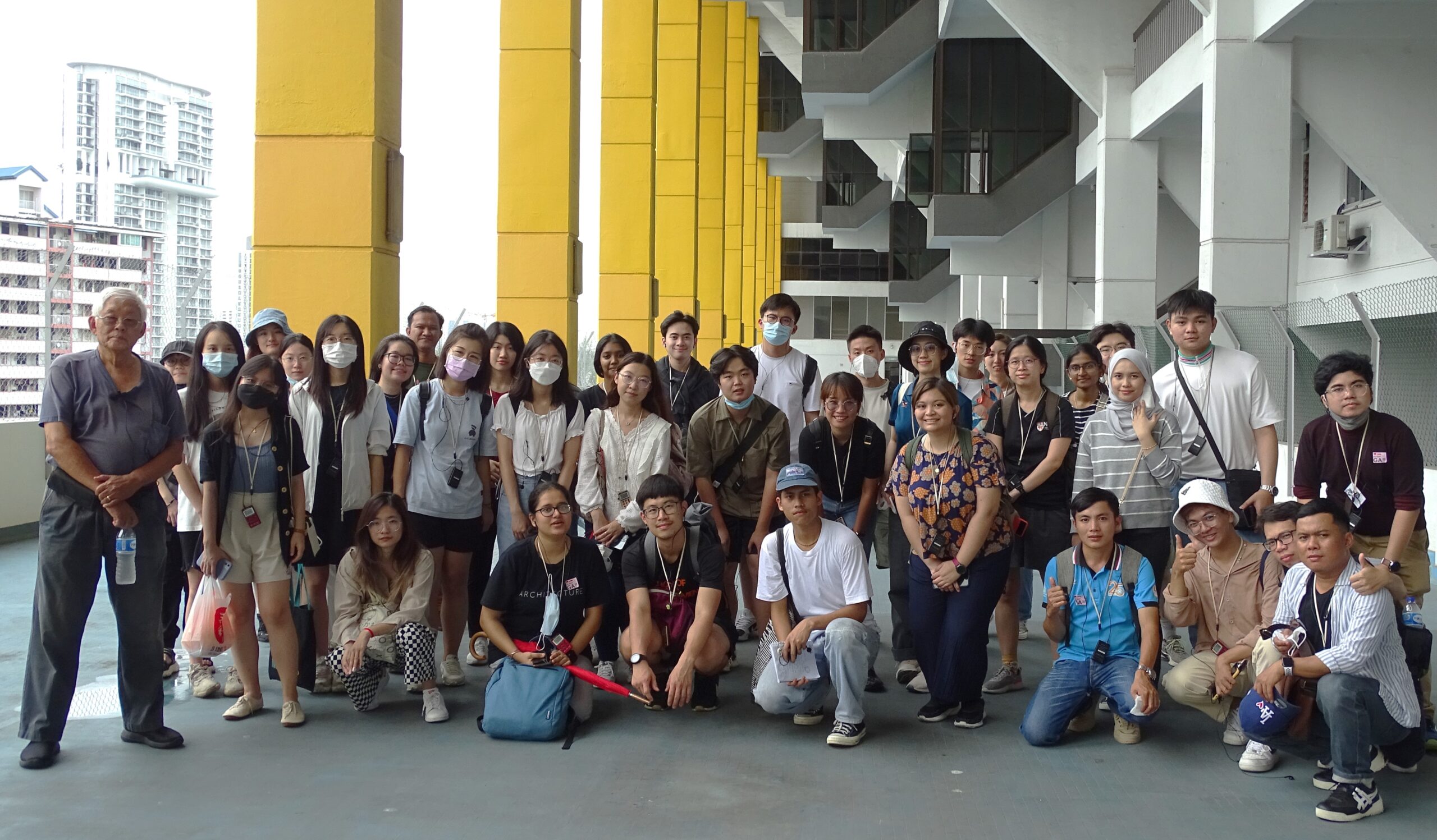
Participants with the veteran architect Tay Kheng Soon at the Golden Mile Complex, who was one of the architects of this now conserved building.
Participants also attended a series of lectures by known experts to discuss topics, including policies on incentivising architectural conservation and highlighting the push for sustainability in an age of continuous disruptions due to climate change.
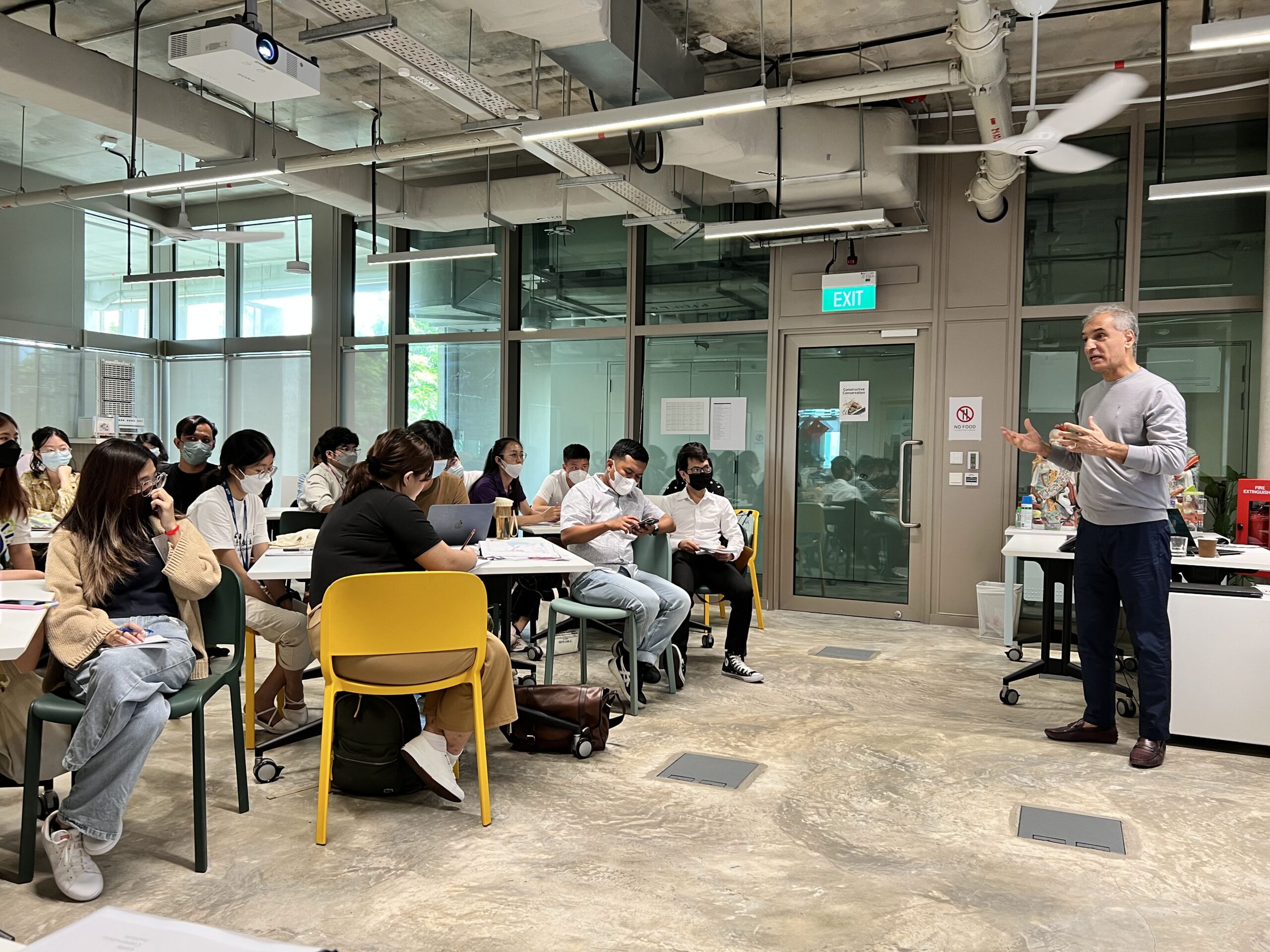
Dr Hossein Rezai, Founding Principal and Director of Web Structures, sharing his knowledge and experience with the participants
One of the participants, Leijh Hanne Alianza, a Landscape Architecture undergraduate from The Philippines enjoyed the opportunity to visit the heritage sites. She describes the experience as life changing as she learned about modern heritage alongside delegates who shared the same passion for cultural conservation. Leijh also shares some key takeaways from the week, "Spending time with these great design-thinkers and seeing how they value their indoor and outdoor spaces as reflected in many of their respective heritage places, I realized this intrinsic power that we have in changing people's lives. We are not merely creating places, and our job is not just limited to aesthetic forms, rather, we are designing experiences and shaping the everyday lives of people. Beyond beauty and functionality, the spirit of the place and its implications for people's lives and the environment trumps all. Likewise, we must not cage the idea of sustainability as an intrinsic feature of a structure, but rather we must cultivate the notion that sustainability is both a mindset and a lifestyle. After all, healthy environments make for healthier people and vice versa."
These sites and lectures led up to the main event of the NUS-ASEAN Field School, where participants were introduced to the Twentieth-Century Historical Thematic Framework (Getty Conservation Institute, 2021). This tool assesses and defines history to promote broad thinking about historical buildings and sites. Through this session, participants were challenged to engage in different ways of thinking, discussing what constitutes 'modern' heritage and how this can be sustained for generations.
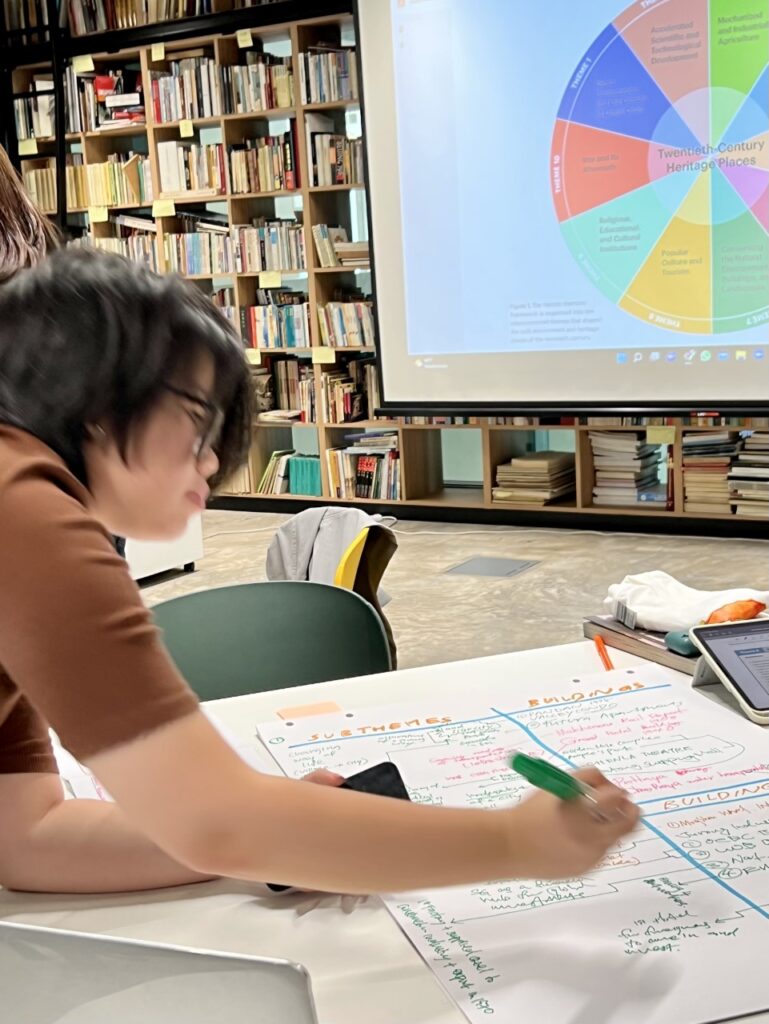
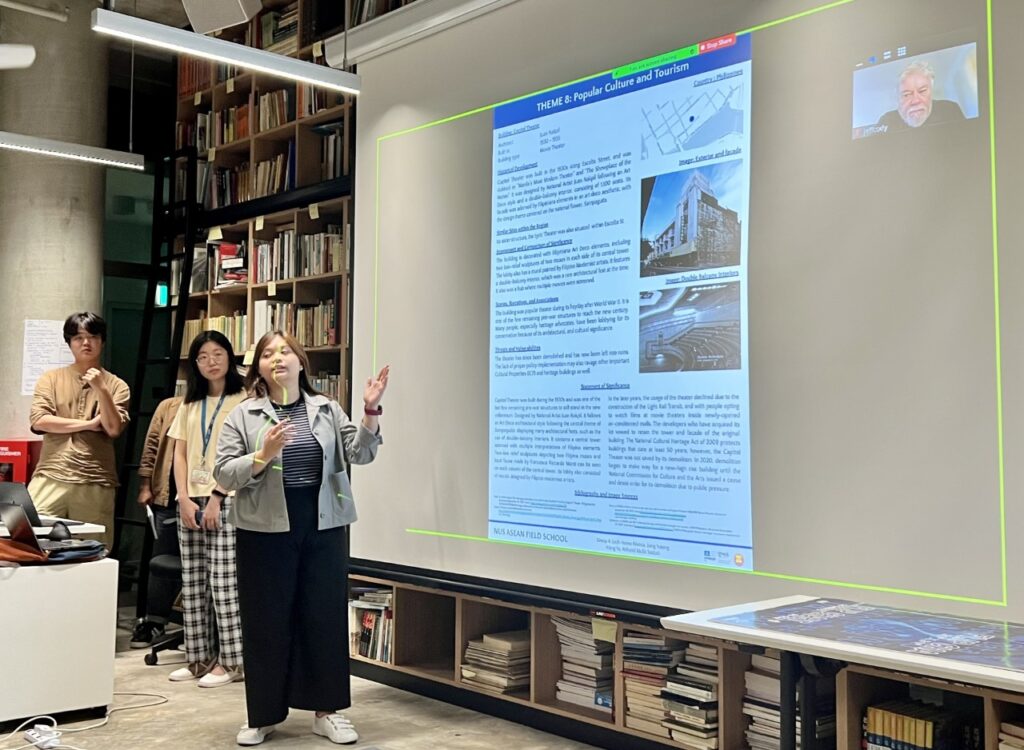
The group was introduced to and discussed the Twentieth-Century Historical Thematic Framework, a publication by the Getty Conservation Institute




